AppleInsider · Kasper's Automated Slave
About
- Username
- AppleInsider
- Joined
- Visits
- 52
- Last Active
- Roles
- administrator
- Points
- 10,953
- Badges
- 1
- Posts
- 66,634
Reactions
-
Calls for Tim Cook's resignation over Apple Intelligence miss that he has made Apple what ...
Apple's mistakes and even lies about Apple Intelligence are ultimately the responsibility of CEO Tim Cook, but he's not going anywhere -- and nor should he.
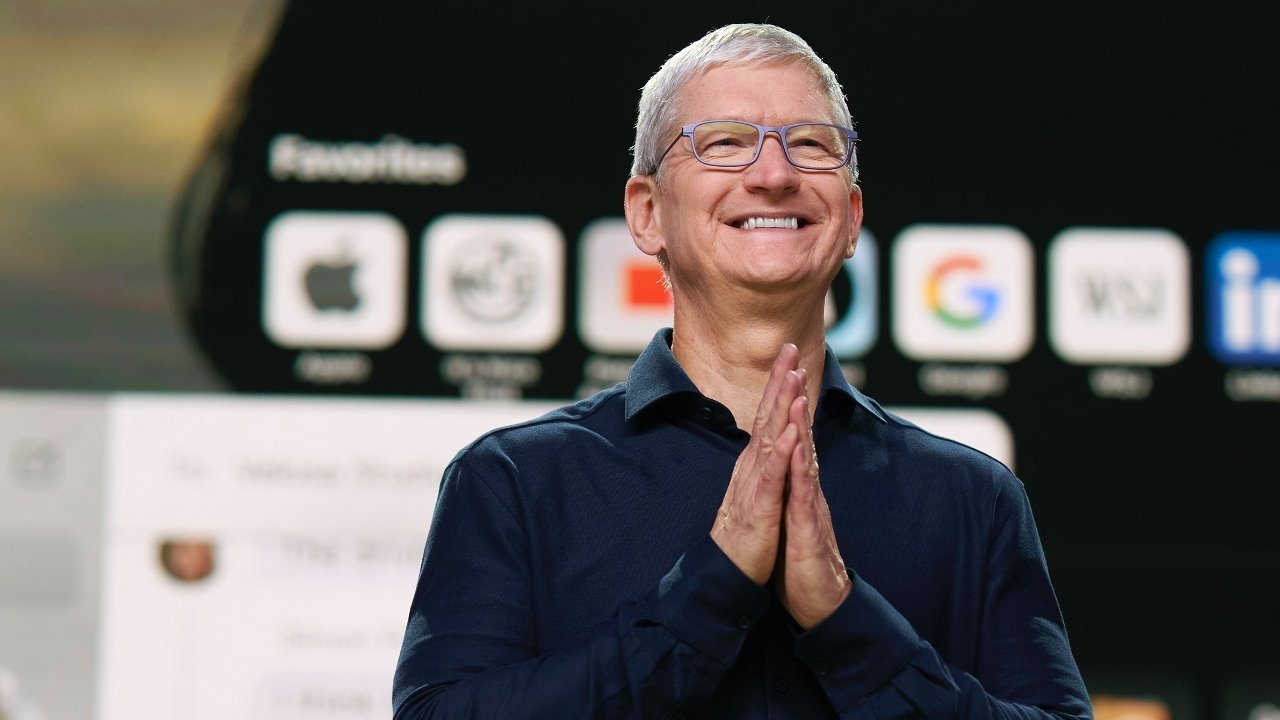
Tim Cook
It's true that the buck stops at the CEO, but without Tim Cook, Apple would not have so many bucks. So while there is much to criticize in how Apple has managed Apple Intelligence, there's also much we'll never know -- and no justification for wild cries for his apologizing or being fired.
This is what we know was wrong. Apple should not have released that ad showing a woman using Siri to remind her of the name of someone she'd met before.
It was an excellent ad. For all the hype over AI, there are rarely any use cases shown anywhere. And when a use is shown, it's something technologically impressive, or it's about buying something via your fridge.
Apple's ad was the first one where you thought yes. I would do that. I would use that feature.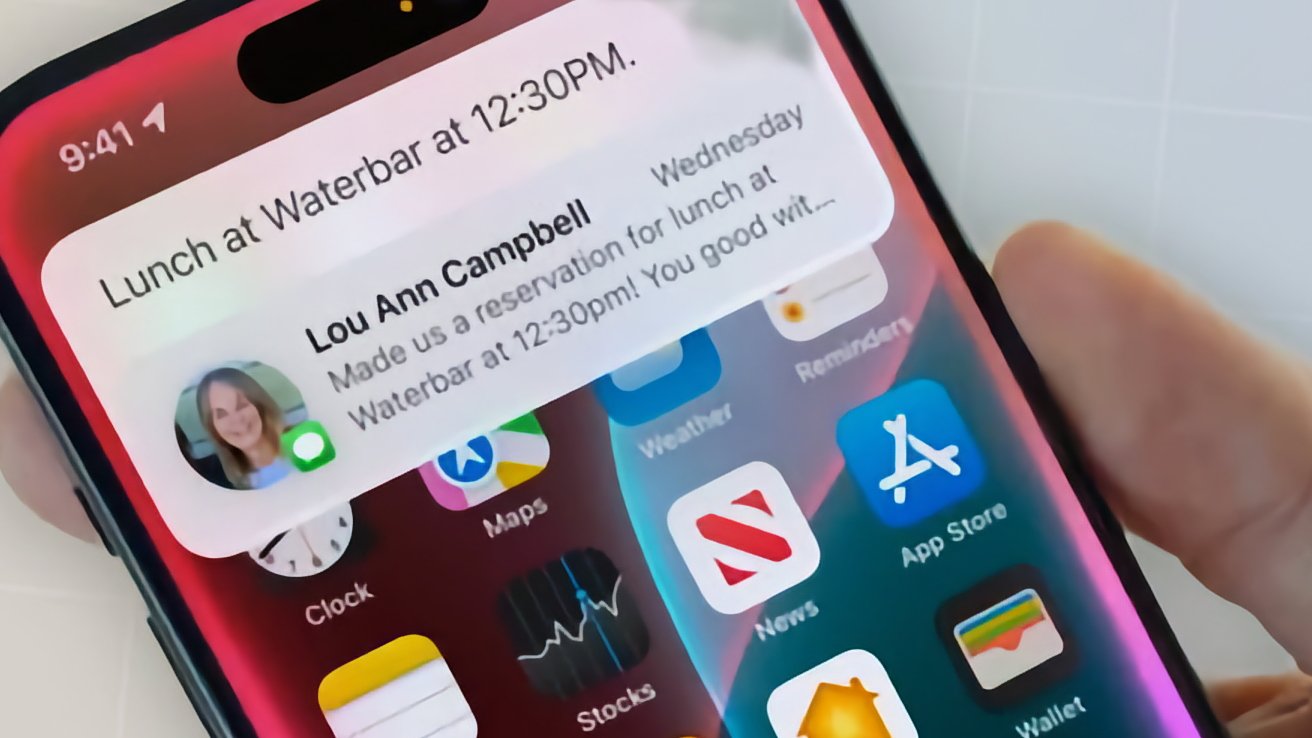
Apple's ads show Apple Intelligence features that are fantastic -- and fantasy
So the fact that no, you wouldn't, because no, you can't, was wrong. It's not as if ads are documentaries, but there's a difference between "sequences shortened" and features being fantasies.
There's also a difference between showing Apple Intelligence as a demo at WWDC, and making it the reason to buy the iPhone 16e.
Tim Cook had final say on all of this, and Tim Cook actually said on video that "with iPhone 16e, we're able to bring Apple Intelligence to even more people."
Apple Intelligence seems to have suddenly turned a corner from successfully boring -- it didn't do much, but it did it well and privately -- to being inadequate. Apple is again being said to be behind the industry.
Looking from the outside, AppleInsider argued that everyone is a loser in the Apple Intelligence race. And then John Gruber went further, saying that Apple actively lied about Apple Intelligence.
Then leaping on this, analyst Ming-Chi Kuo was among many saying that there isn't the iPhone sales boost that Apple Intelligence was supposed to bring.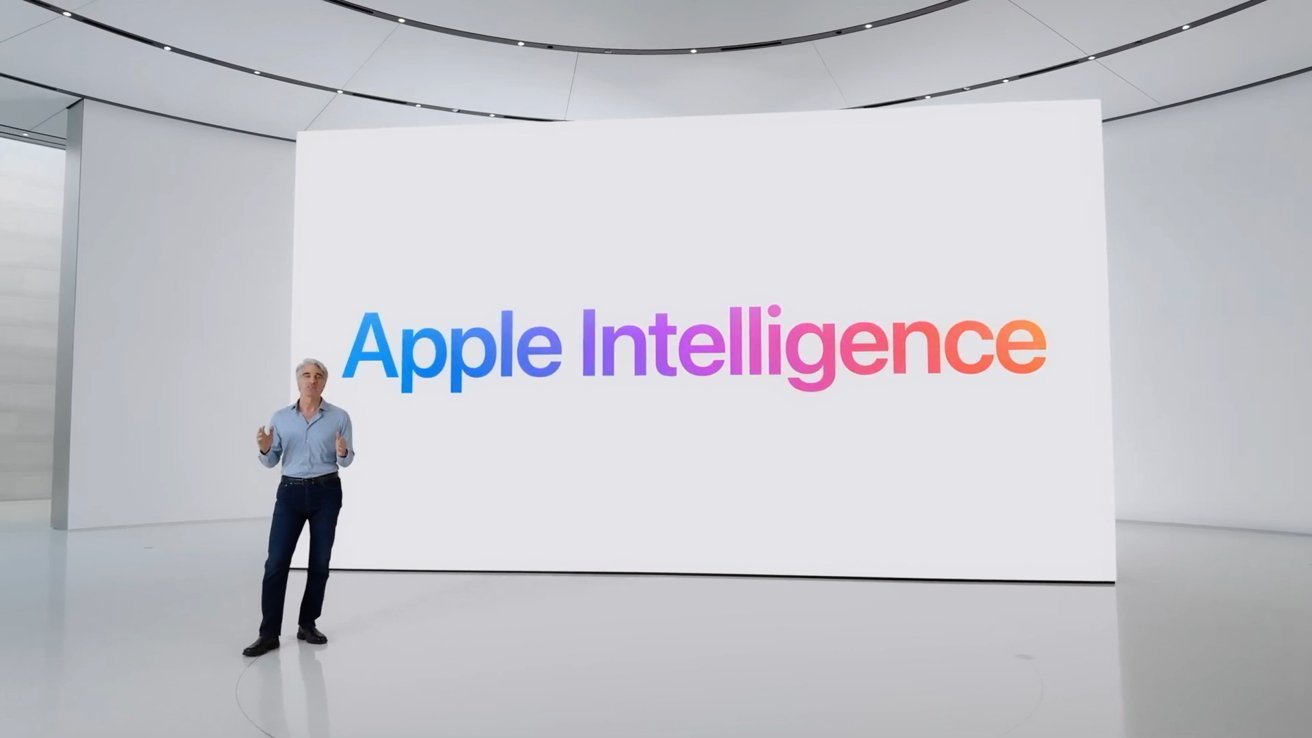
Apple Intelligence may have been launched too soon
Add to this the fact that nonsensical tariffs have led to Apple shares going down, and may mean prices go up, Tim Cook is not having an easy time.Apple plays the long game
There's a presumption that all of these Apple Intelligence problems stem from Apple being forced to release the features early. That doesn't fit with how the company routinely ignores all criticism.
If it didn't, we'd have had a probably poor iPhone Fold more than five years ago.
Yet there is one piece of evidence that, for whatever reason, Apple is reacting to the rest of the industry. Sometime around Apple's "It's Glowtime" event in September 2024, the company abandoned talk of what it used to call Machine Learning.
Instead, from that point on, ML was barely ever mentioned, and everything was AI. There was no change in what Apple was doing, it was a change in the term it used.
There was then "Apple Intelligence," and Cook himself revealed that there had been debates within Apple about what to call it.
If the change from Machine Learning to Artificial Intelligence was very un-Apple, "Apple Intelligence" was typical of the firm. Not just as in it was prefixed "Apple" instead of the "i" of the Steve Jobs era, but in how publicly the name was derided, and then we all got used to it.
We will also get used to Apple Intelligence and what it actually does for us, when it does anything for us. And for the next few years at least, Tim Cook will be leading it.What Tim Cook means for Apple
Steve Jobs himself reportedly worried that Cook was not a "product person." He seemingly does not have the interest, or perhaps obsession, over product design that Jobs or Jony Ive do.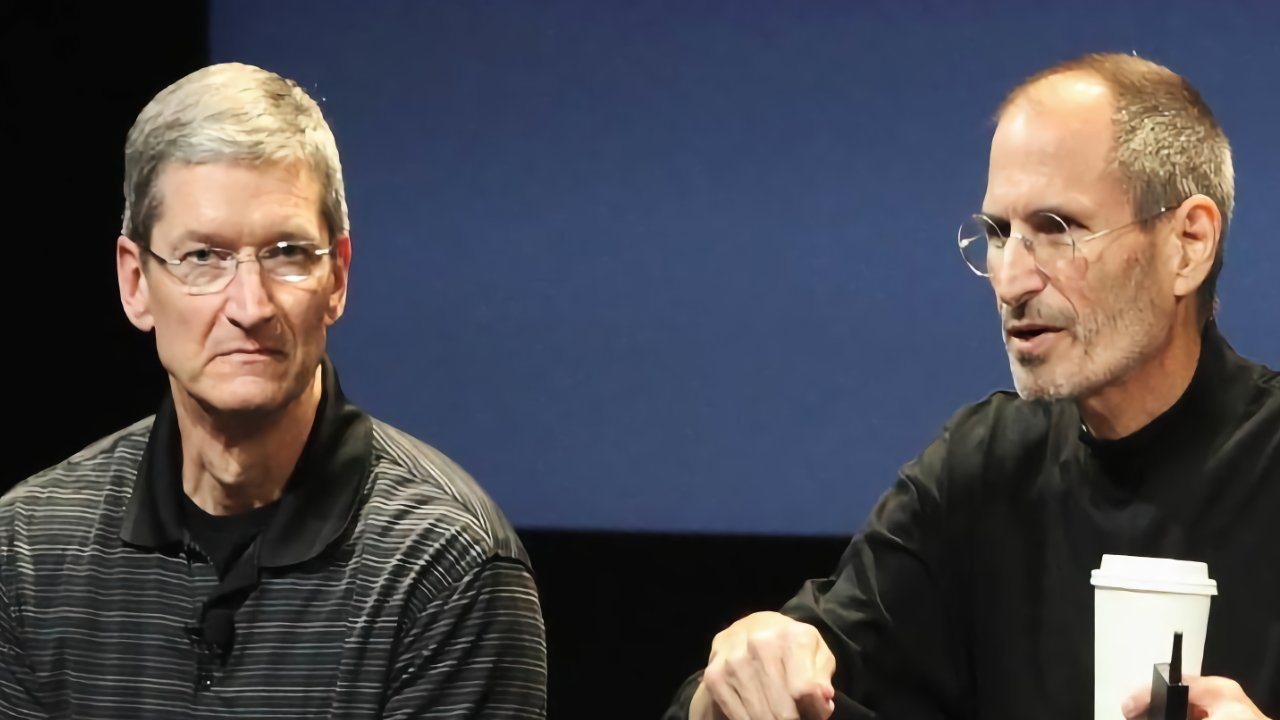
Tim Cook (left) with Steve Jobs
But what he demonstrably had and has is better business sense than Jobs. For example, investor Warren Buffett explained the issue of stock buybacks to both Jobs and Cook, but it was Cook who did it on a massive scale.
Starting in 2012, Cook began the policy of Apple buying back its shares at intervals. Since then, Business Insider estimates that Apple has bought back over $500 billion worth of shares -- which is more than the value of Visa or JP Morgan.
Apple is at times the most valuable company in the world, valued at over three trillion dollars. According to figures by StockAnalysis, when Steve Jobs died Apple's market cap was $376.4 billion at the end of 2011.
Curiously, in 2011, that figure was also enough to mean that Apple was -- briefly -- the most valuable company in the world.
Cook doubled Apple's profit and revenue in under 10 years. But then in January 2022, the start of Cook's 11th year as CEO, Apple became the first company to reach a market cap of $3 trillion.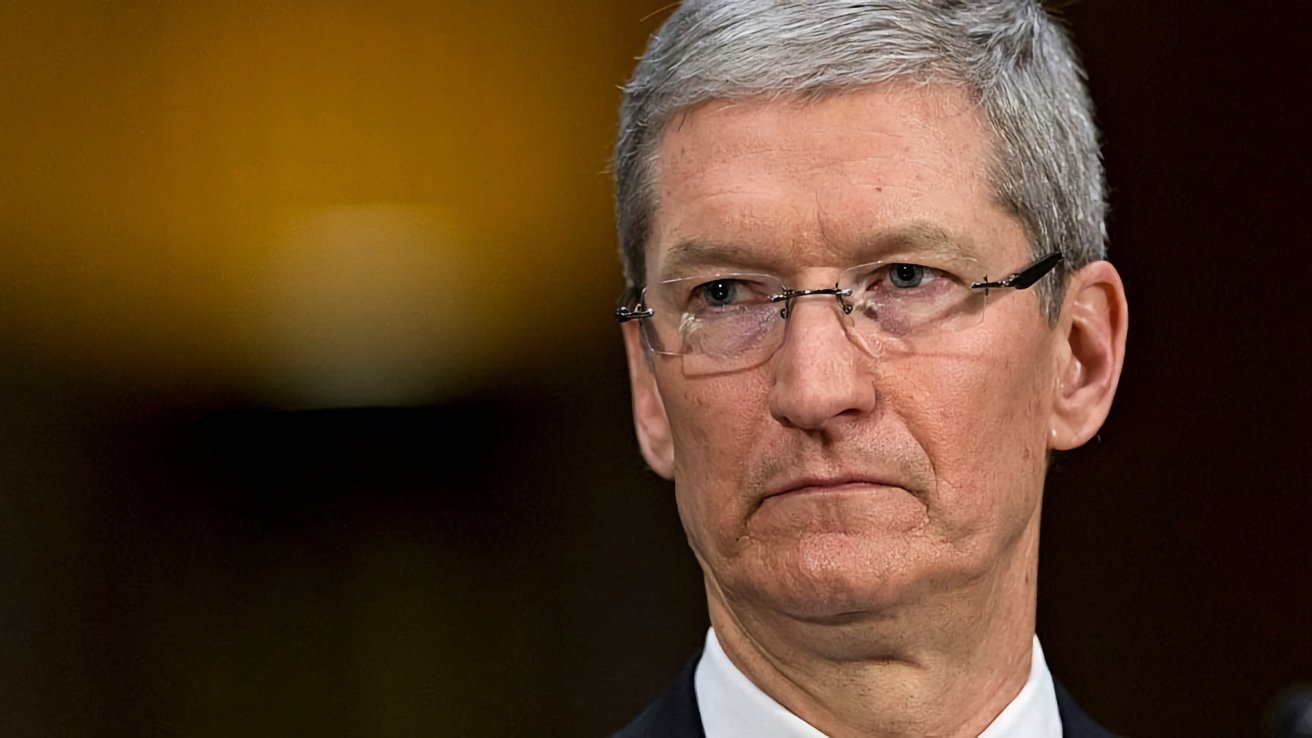
Tim Cook
If billions and trillions are hard numbers to imagine, here's another one. Apple could, if its valuation could be converted to cash without loss, give every person living in the continental USA a free iPhone 16e -- and then 13 spare ones. Each.
Or instead of laying out 64 iPhones to make one video, the group OK Go could completely cover 20.36 square miles with the iPhone 16e.
That's the size of New Haven, Connecticut, or Yonkers, New York, completely paved over with iPhones.
Or, based on figures from MacroTrends, Disney's market cap is currently $201 billion, so Cook's Apple could buy it almost 15 times over. Although he won't.What Apple means for Tim Cook
Every Apple executive enthuses about how much the company means to them, and none talk about it financially. There must be ones who are in it for the money, but if Cook were in it for the cash, he could walk away from Apple Intelligence.
Whether he's truly passionate about Apple or would have been happy making any business grow, Cook is not some selfless saint. Instead, he is invested in Apple in every sense.
He could also be a lot richer than he is, though, and in fact he could be the richest man in the world, if he emulated Jeff Bezos and Elon Musk in how many shares he owns. While figures vary, Musk owns 13% of Tesla shares and Bezos owns 13% of Amazon ones, but Cook has 0.021% of Apple shares.
Cook also repeatedly sells off his shares, cutting his total down further. But if he were to own 13%, his personal net worth would exceed $470 billion, as of February 2025.
Rather than comparing him to today's Amazon and Tesla owners, though, compare Cook to Steve Jobs. When he died, Jobs's net worth was approximately $10 billion -- but most of that was Disney stock.
Jobs did own more of Apple, in percentage terms, than Cook does now, though. Jobs had about 0.24% of Apple.Growth by design
Apple would not be the company it is today without Tim Cook. It would not even be close, and it might not have the financial security to invest in multi-year projects that might never pay off.
That appears to be what happened with the Apple Car. It surely isn't what will happen with Apple Intelligence -- which itself profited from the research done into the Apple Car.
And for a man said to be more focused on logistics and the business of Apple than its products, Cook has overseen some huge successes. Under him, Apple launched the Apple Watch, AirPods, AirTags, and the Apple Vision Pro.
But ultimately what makes Cook indispensable is that business sense and knowing how to play a much longer game than Apple's rivals. It is specifically because of Tim Cook that Apple has gone as far as it as with Services like iCloud+ and Apple TV+, for instance.
As iPhone sales continue to drop, Apple continues to rise because Cook has moved it to this broader base than just one product.
Apple Intelligence may ultimately be seen as a marriage of hardware products and software services. If it is, then as wrong as Apple and Tim Cook have been about how to promote it now, we will again see Apple being the model to copy for all AI.
Tim Cook won't resign over Apple Intelligence, and shouldn't. Calls for him to do so are folly. Instead, he will continue to reign over it.
Read on AppleInsider






-
Apple's C1 modem is a quiet game-changer that's mostly flying under the radar
With the launch of iPhone 16e, we also saw the launch of something far more important -- Apple's custom C1 modem. Here's what means and why you should care about it.
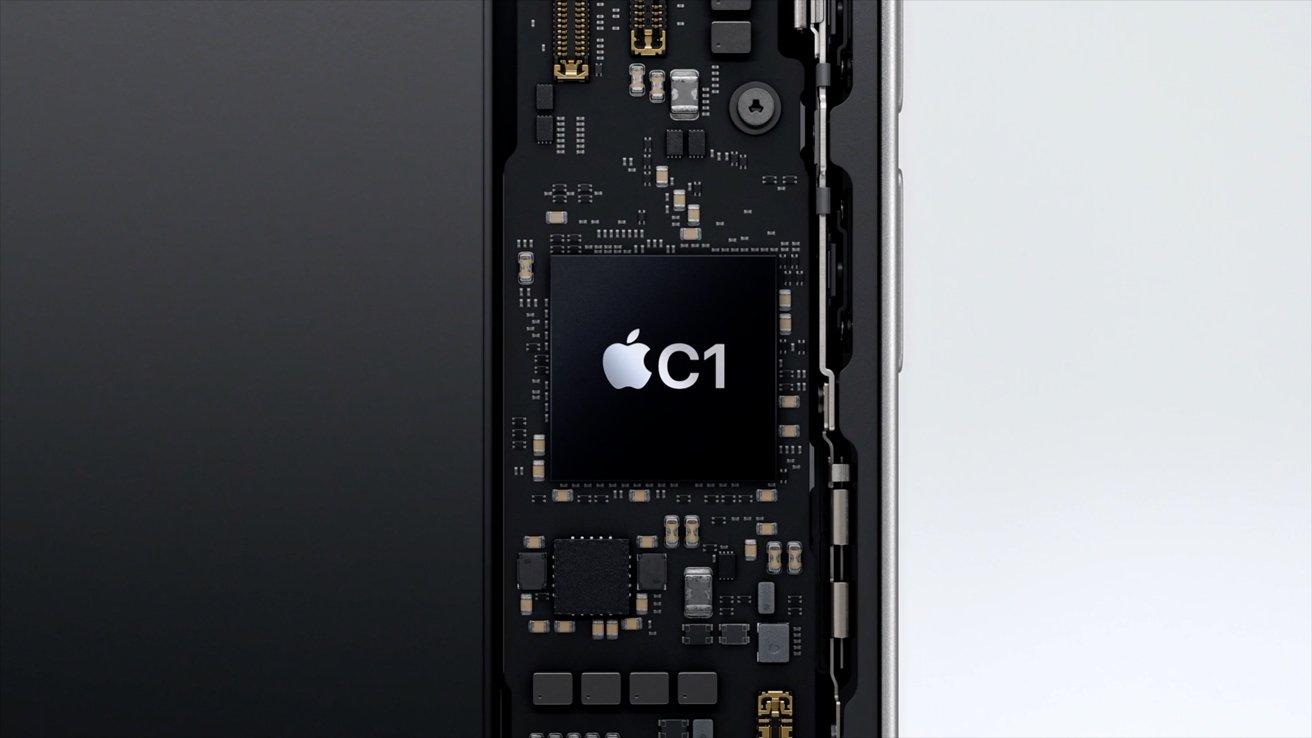
The C1 modem debuted in iPhone 16e
To cover the basics, the modem a chip in your phone that connects you to your cell provider. The C1 modem chip is the fruit of Apple Silicon research. It is Apple's first modem that it has created entirely in-house, versus buying off-the-shelf components from Qualcomm.
There's discussion online that Apple's efforts to create their own modem are just a way to stop paying Qualcomm. That may be partially true, but it's got more to do with supply chain control and Apple's future plans.
Technically, even though it's Apple's chip, Apple is still paying licensing fees of some sort. It may phase out Qualcomm's modems, but will still owe royalties for use of the 5G standard.
But now, Apple has control over designing the chips, how they're produced, and exactly what they can do. Plus, Apple is already utilizing this chip in some really unique ways that pays off for you - the user.Compromises on a first-gen chip
As the first Apple modem, Apple did have to make some compromises. Shortcomings include the lack of support for Wi-Fi 7, as well as no mmWave cellular support.
So far, while the C1 doesn't break any speed records, it's at least as capable as Qualcomm in core 5G performance in early tests.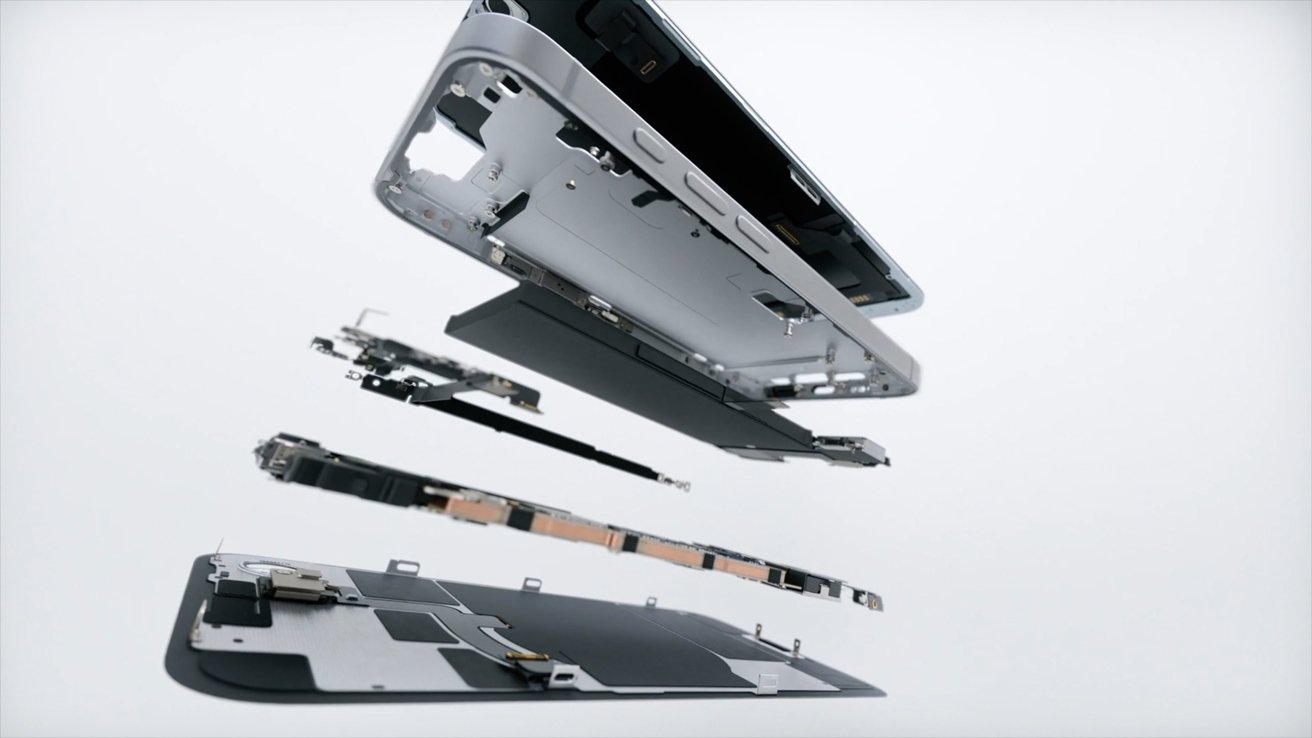
Apple excels in designing the hardware and software together, down to a chip level
No Wi-Fi 7 may hurt eventually, but it is a brand new standard. Apple appears to be late to the game for supporting new Wi-Fi spec, so with control over the chip, it could speed things along.
I know some may balk at the lack of mmWave, but it's still not commonplace enough to matter for most users. Its inability to go through walls relegates it largely to select outdoor areas in big cities or in stadiums -- at best.
That's likely why the C1 debuted in Apple's iPhone SE successor. If performance isn't up to snuff, it won't be as big of a deal compared to the priority flagships.
Don't let these negatives sour you on Apple's chip, though. It's full of potential.Future Apple C-series chips and products
The C1 does some cool stuff within your phone that Apple couldn't otherwise do. For example, it can communicate directly with the processor.Your modem can tell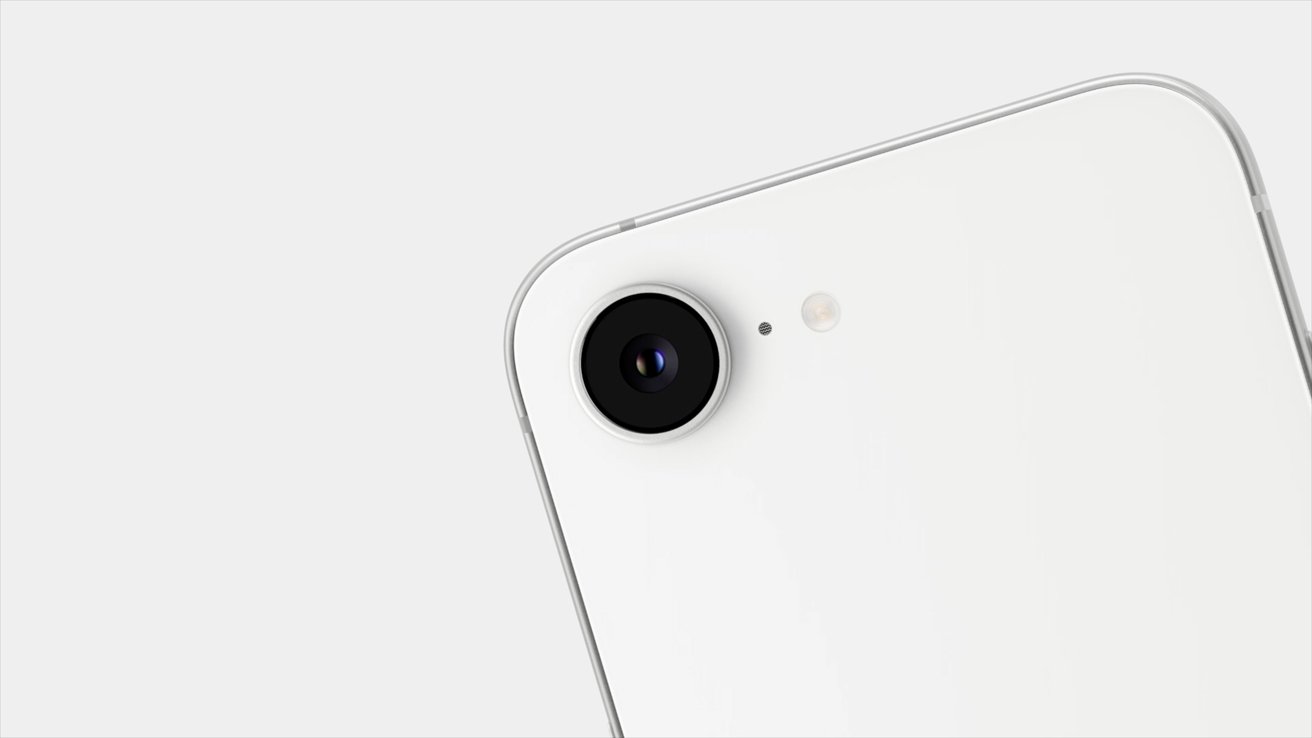
iPhone 16e may not have Wi-Fi 7 or mmWave, but it has a few tricks such as amazing battery lifeyour processor when the network is congested or slow. Then your processor can reply back to the modem with what data should be prioritized.
The result, is even in poor network conditions, your phone feels faster. That's not something a speed test can show readily.
It's that kind of tight integration between hardware and software Apple is known for, and something that gets largely unrecognized.
The same innovation goes for the battery life. The C1 is so power efficient, it gets four more hours of use than the comparable iPhone 16 with its Qualcomm chip.
So with its first try, it has a chip that is comparable to Qualcomm with far better power efficiency and unique chip-level communication. It's great for the iPhone 16e, but could show up in other products too.
Up next, iPhone 17 Air is the most likely contender. Rumors say it will get the C1, while the iPhone 17, iPhone 17 Pro, and iPhone 17 Pro Max will stick with existing Qualcomm chips.
For example, putting C1 in the iPhone 17 Air makes perfect sense. It's a whole new device with a tiny form factor so battery life will be incredibly important.
Rumored to be under 6mm thick, there's very little internal volume for a large battery. As a result, Apple will have to use smaller battery than others in the lineup.
Thanks to the C1, Apple may be able to match or exceed the other phone's battery lives with such a small chassis -- as it has done with the iPhone 16e.
Looking further into the future, reports say Apple is already hard at work on a C2 and even C3 chip. These are the ones that are more likely to show up future iPhones that improve battery life further, add on mmWave, and go to at least Wi-Fi 7.
Furthermore, a recent report says that Apple is even working on integrating the C-series chips directly into its A and M-series processors. Which means, theoretically, we could finally get cellular Macs.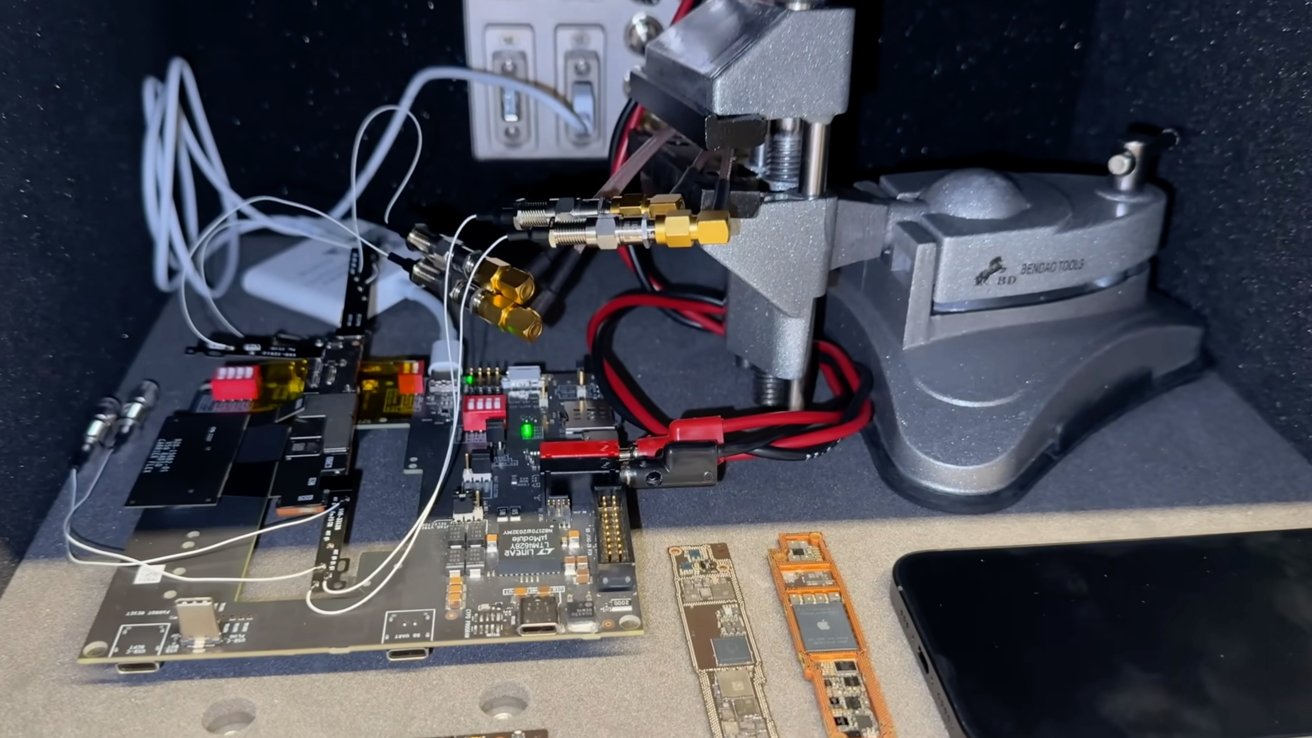
Inside Apple's chip testing labs. Source: Andru Edwards
Cellular Macs have been a long-time dream for users over the years and while you can use the wireless hotspot on your phone, it isn't the same. Performance isn't as good unless you're tethering with a cable. For better or worse, Apple's C1 in Mac and would allow you to have one data plan for your laptop and a second for your phone.
For example, you could have a Mac on a movie set, or in a street market without needing Wi-Fi or someone's phone to tether to.
A photographer shooting remotely would have a more reliable connection. Why tether from your phone and stay next to your laptop during a photo upload session when the laptop itself could have a self-sustaining cellular connection?
Sources familiar with Apple's plans say that it is currently integrating the modem more tightly with other hardware, for benefits including greater efficiency. I'd love to see inclusion in a Home Hub as part of iCloud+ as a redundancy in case of network outages.
The ability for Apple to add new features, iterate more quickly, improve performance, and allow devices to be thinner and longer lasting sounds amazing. And we're just at the beginning here.
The C1 is an amazing piece of tech and I'm sure we'll eventually look back on this just as we do now to when Apple ditched Power PC for Intel and then Intel for its own chips. It's under-the-radar inclusion on the iPhone 16e is the start of a whole new era for cellular Apple devices.
Read on AppleInsider
-
Everyone is a loser in the Apple Intelligence race
Apple Intelligence is seemingly being lapped in the AI race, but it's hard to determine who's really winning when the competitors change the victory condition every few laps.
There's a lot of AI out there, but picking winners and losers isn't that simple
Humans are a tribal species that thrives on competition and debate, and it's no different when it comes to technology. Whether you're talking about Android versus iPhone or PlayStation versus Xbox, people love to pick sides.
It's no different for the various artificial intelligence systems available. However, almost universally, it seems people and pundits are calling Apple Intelligence the biggest loser -- even when compared to systems that haven't released yet.
I remember when this whole "Artificial Intelligence" thing started. It was and still is a bad name for an evolution of technology that has nothing to do with computers knowing anything.
Intelligence is literally defined as the ability to acquire and apply knowledge or skills. Artificial Intelligence does neither.
The so-called "artificial intelligence" is just a brute-force technology that works best when it has access to mass amounts of data stolen by mostly large corporations from the web. It can't think, it can't reason, and it doesn't have knowledge -- it has access to knowledge.
It then parses that knowledge into a soup that sometimes makes sense, and sometimes doesn't. But it does it so confidently, that Google likes to put it forth as gospel, eager for people to scoop up, right or wrong, credited or not.It's impossible to win a race with a moving finish line
I'll say it up front in case anyone is confused. I'm not here to defend Apple's current state in Apple Intelligence.
Let's be frank -- Apple's position isn't ideal, and I'm not going to try and convince anyone it's getting an unfair bad rap. It deserves the criticism it gets.
Apple Image Playground Sketch style (left) and ChatGPT via Siri interpreting that (right)
There is a narrative going around that Apple wasn't even thinking of this technology until pressure mounted in late 2023. While it is possible Apple wasn't targeting a 2024 release, I doubt they completely missed that ChatGPT and Google Bard were part of a zeitgeist.
Apple has been working on computational photography for many iPhone generations, from the bokeh effect introduced with iPhone 7's dual cameras to the intensive camera systems on iPhone 16 Pro Max. These advancements in iPhone photography necessitated a new chipset that would take the load off of the GPU -- the Neural Engine.
The Neural Engine debuted in the iPhone 8 with the A11 Bionic. While no one was calling these advanced models "AI" at the time, it was the foundation of the technology we use today.
OpenAI began research for generative AI models in 2016, which is when Apple, Google, and Qualcomm also announced similar research projects. Apple revealed it was researching AI in December 2016, revealed the Neural Engine in 2017, then ChatGPT was released in 2022, and Apple Intelligence in 2024.
That doesn't mean Apple didn't already have so-called AI before Apple Intelligence. A lot of early AI wasn't even generative. Google and others were waltzing on stage talking about AI when the technology they showed wasn't fundamentally different from the advanced ML used on iPhone at the time.
Apple wasn't behind on AI in 2016, 2022, or 2024, it's been in the game since it started work on Project Titan in approximately 2015. For those that have already forgotten, Apple had always planned on it being an autonomous driving unit with AI.Increasing pressure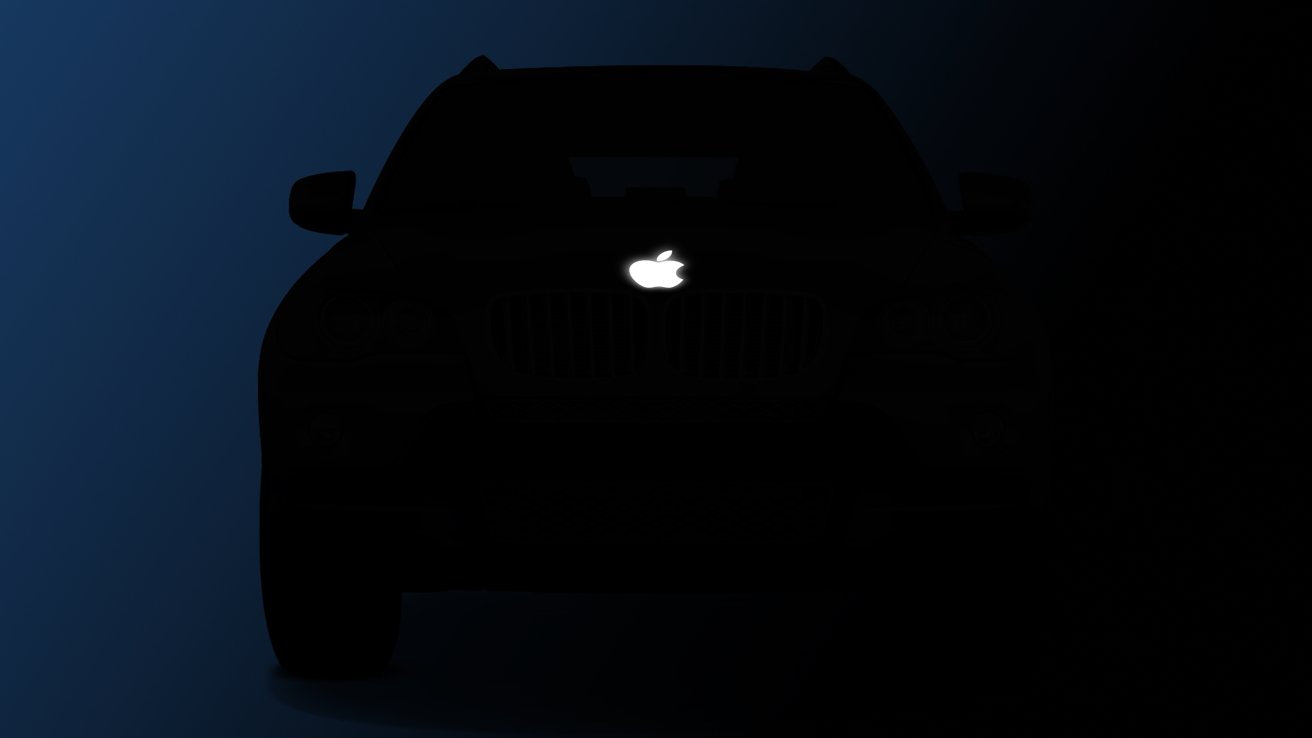
Apple Car wasn't going to drive itself without AIto announce something, anything related to AI in 2023, seemingly forced Apple's hand. It can be seen in how the company talked about AI before WWDC 2024.
The executives even went out of their way to avoid saying AI to the point it was a running joke in the tech community. Then suddenly, everyone at Apple was saying "AI."
An internal adjustment occurred as they came up with their strategy on the fly. Market pressures from the stockholders, customers, and global influences forced Apple to come to the uncomfortable conclusion that the iOS cycle they had planned wasn't going to work.
Apple Intelligence had to be revealed in June or the company would face incredible pushback. Without AI, Apple was "behind" and people would turn to competitors that offered access to this new popular technology.
Let's not forget that at the time the existing models were doing little more than producing wild hallucinations and poorly conceived student essays. Even so, Google and OpenAI were promising a technology so grand and dangerous it could destroy humanity, eliminate all work, and collapse economies.
Ah yes, glue on pizza. AI is a world-threatening cataclysm indeed.
While this Skynet level of AI never showed up, people ate up the idea, and Apple wasn't part of the conversation. Tech folk kept repeating the lie that AI was changing the world and Apple wasn't going to be part of the revolution.
ChatGPT and Google Gemini are hammers, not self-aware computers. They help with very specific situations and make some really cool stuff.
I can't help but be in awe at some of the generated images and videos. Interacting with a chatbot can be entertaining and unique, like talking to a video game. Zork writ large.
There are people out there producing some really interesting stuff thanks to AI. When the technology is applied to science, research, analysis, and other academic or enterprise uses, it can do amazing things.
But let's not fool ourselves. It is already having a detrimental effect on the internet.AI may not kill humanity directly, but it will kill the internet
The real threat of AI from companies like Google and ChatGPT is the death of the information industry as a whole. Google started life with a goal to organize the world's information, now it is using that access to eliminate the need for the web outside of Google search results.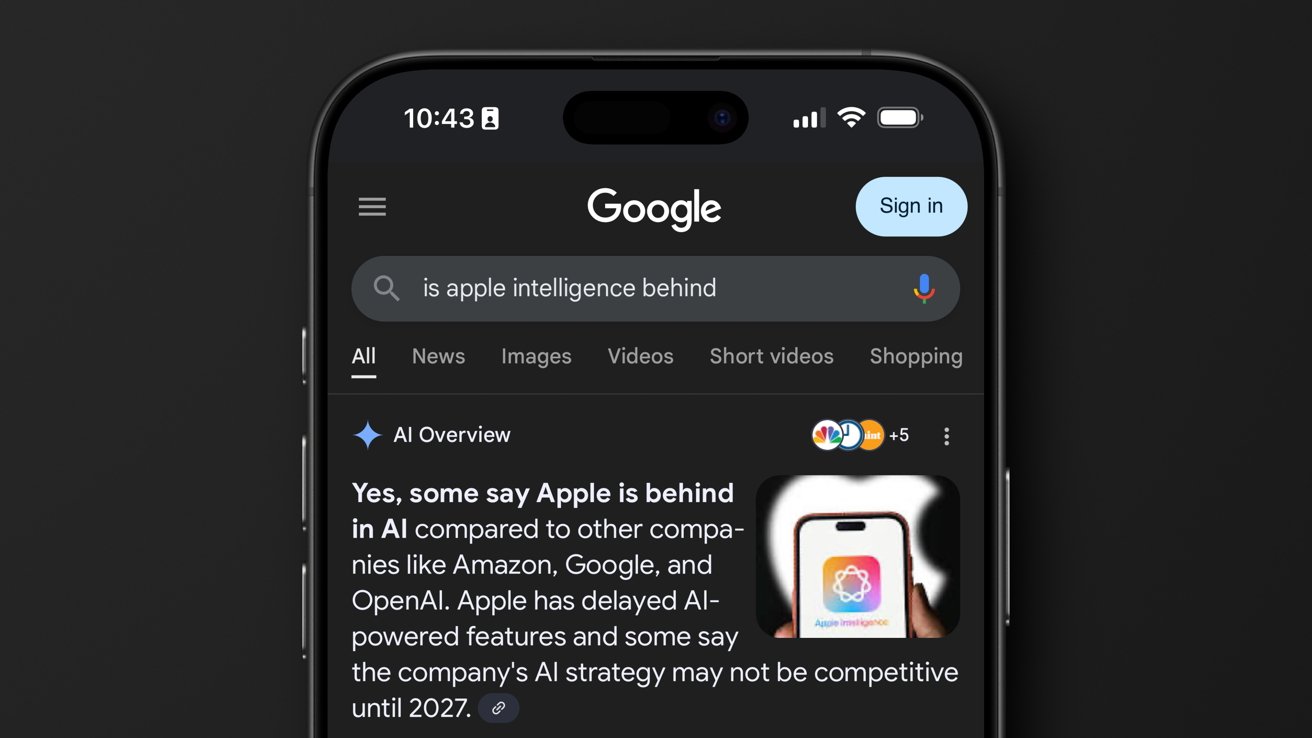
No need for websites when everything is accomplished in the search bar
It's thanks to companies like Google that we have a web built around ads and tracking users. That ad system pays the bills for publications so information can be researched, written about, published, then indexed by Google.
Google has broken that cycle of trust many times over the years. It first did it by boiling the frog, gradually taking more of this revenue for itself, squeezing out everybody else. This has already forced the closure of many, many enthusiast sites, and several AppleInsider employees are refugees from that.
It is doing it now by amalgamating several results from multiple sites into one AI summary. It now leads most searches with that, accuracy, accreditation, and payment be damned.
Inevitably, the AI will increasingly feed on AI-generated content. This closed feedback loop reinforces specific ideas, eliminates human publication, and ultimately creates a web where the only place you can get any information is from trillion-dollar companies.
AI works better as a tool for humans, not a tool that replaces humans
The only way out of this mess is to stop treating AI like some kind of all-knowing tool that replaces human work. It can accelerate and enhance work done by humans, but it will never replace it.
Apple could face a similar dilemma with Apple Intelligence as app intents and LLM Siri are finally rolled out. If users can get all of the information they need via voice interactions with Siri, there won't be much point for opening the app itself.
Developers with sprawling UI elements and beautiful design could lose ground to utilitarian single-screen apps that interact solely through generative AI. Apple's on-device systems will be front and center, benefiting from developer's hard work, but without good ways to monetize apps beyond active service subscriptions.
All of these companies have a responsibility to think about how the changes brought about by AI will affect incomes the world over. Hopefully they'll all realize that AI can be dialed back in some respects to ensure humanity can still shine through, whether it's via human-written articles or app UI.Apple Intelligence is good, actually
When Apple finally revealed Apple Intelligence, I was excited by everything they shared. It was on-device, private, secure, and not actively training on user data.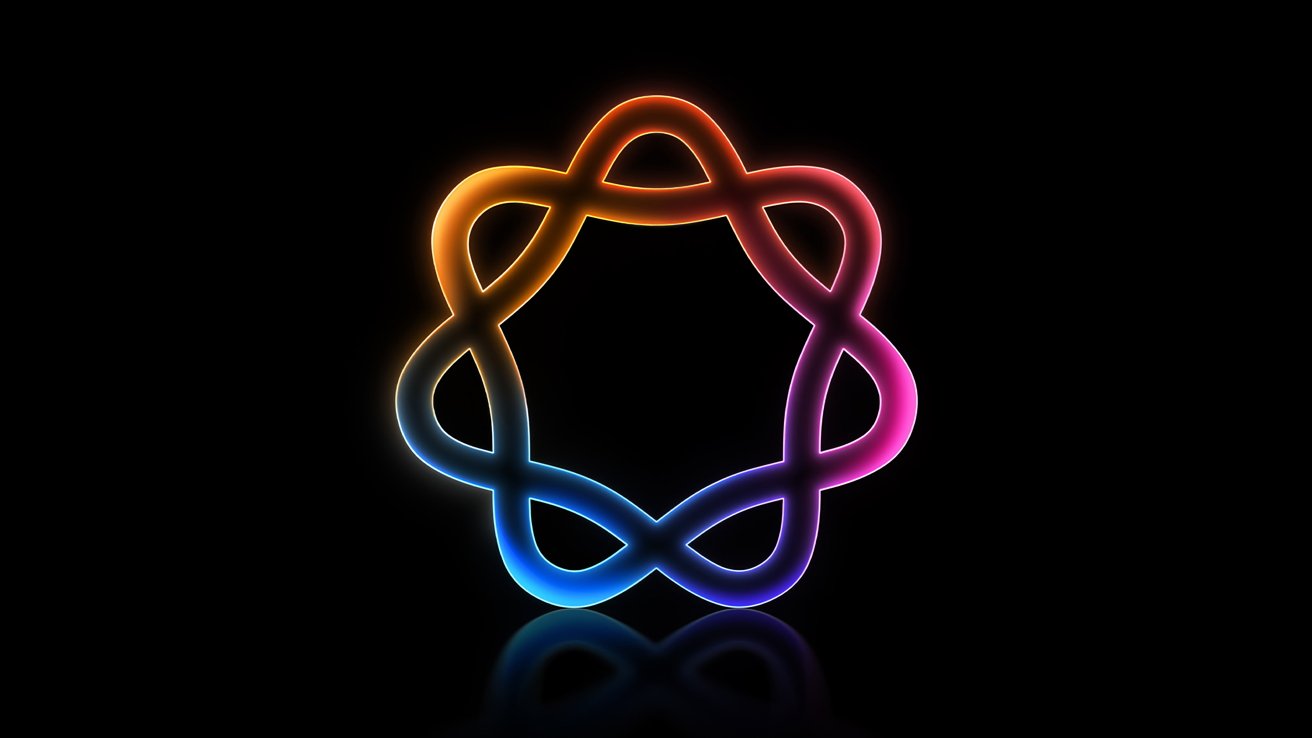
Apple Intelligence is useful, personal, and private unlike other AI tools
Apple's AI tools were smart, if boring. Rather than promise lies like a thinking computer, Apple gave us generative autocorrect, writing tools, and system-wide summaries.
Image Playground was and is a terrible attempt at competing on that front. It was somewhat excusable during the beta cycle, but nothing has changed since that bad superhero Mom example during WWDC, and that's not sustainable when competitors release new versions constantly.
Though, I do think Image Playground needed to release to help see how users would take advantage of the model, kind of like Animoji or Memoji. It acted as a working example of Apple Intelligence in something more tangible than grammar checks.
But yes, the images it makes are terrible if not horrific. Genmoji is neat and useful though.
Using ChatGPT via Siri eliminates privacy and data harvesting concerns
Apple even tied ChatGPT into Siri and its Apple Intelligence tools, but in a smart way that ensures user privacy. The implementation isn't dissimilar to how Siri calls out to Google privately to conduct a search.
Of course, none of this mattered because the doom patrol was out in force to say how behind Apple was. Sure, it couldn't make a Pixar-grade image from a prompt, but the other tools were useful and most importantly, built into the devices they already owned.
From the September release to today, many people have discussed just how far behind Apple is in this AI race. I think it comes down to a perception issue.
Outwardly, Apple is behind. Why is anybody's guess.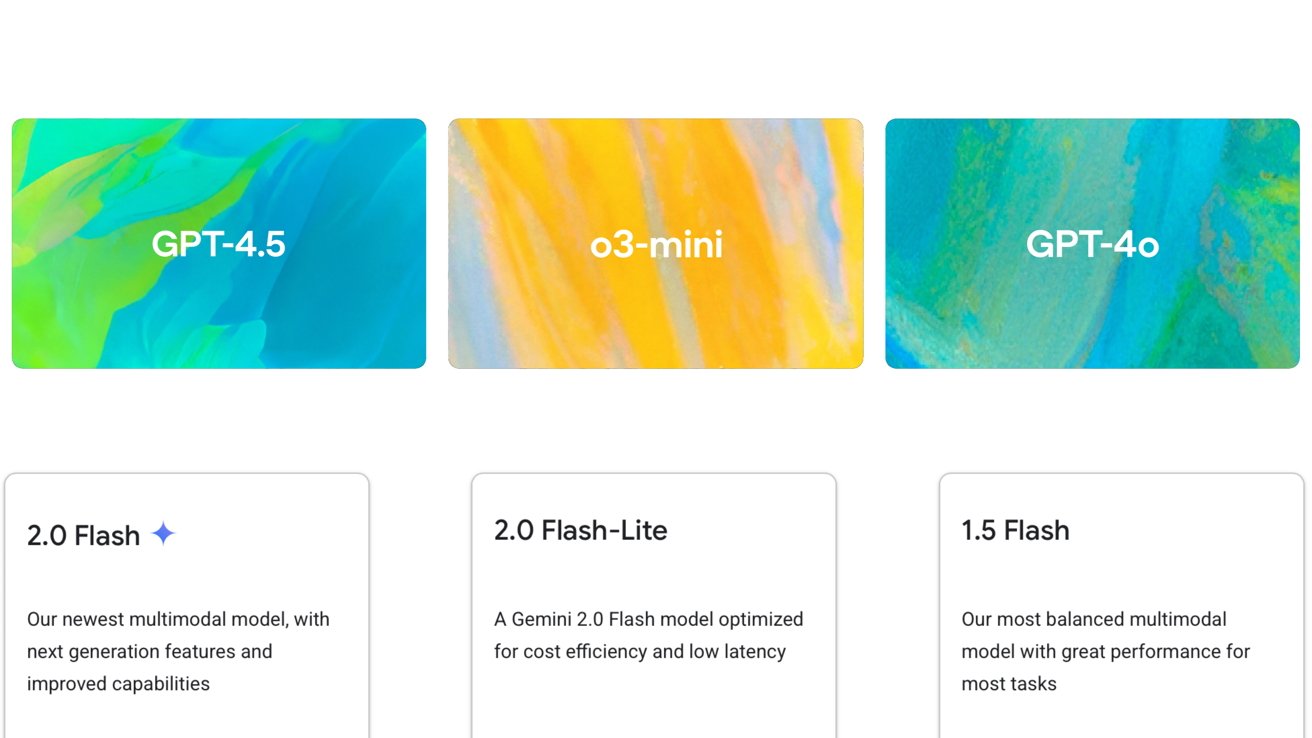
Version after version of increasingly small gains in AI. Image source: OpenAI
Apple isn't shipping new, obtusely named models every week with granular improvements and made-up new milestones. The executives aren't promising to end humanity's need for work.
Apple is doing what it does best -- working internally until something is ready, then releasing.
In fact, Apple Intelligence might be one of the few examples of Apple releasing something before it was ready. My guess is that they had planned to announce all this at WWDC 2025, and we'd have gotten a more polished version of what we have today this fall.
Instead, Apple has been trying to get something new to say about Apple Intelligence with every iOS 18 release. It's all been done in the name of playing catch-up with competitors that aren't even following the rules of their own race.
They invent new terms and new goalposts to celebrate empty victories at every turn. It's all very disingenuous, and AI fatigue has already set in.
I ask everyone all the time, here, in the AppleInsider Podcast, among friends and family, and even just people I'm conversing with in public - "what have you done with AI?"
Really think about it.
People don't know what AI is for or what it can do for them, just that it's supposed to be good and Apple is behind. "It's Brawndo, it's got electrolytes."
The increasingly accurate film/future documentary, 'Idiocracy' had everyone talking about electrolytes. Image source: 'Idiocracy'
I've tinkered with AI from other companies, and they're interesting, but I've not found anything that'll help me directly. To be fair, I'm not exactly the target audience for many of the offered tools. I'm not coding with GitHub Copilot or flooding the internet with slop images and articles in an attempt to make pennies in ad revenue.
I am writing, though, and I am using Apple products. So, the only AI that's made any difference in my life is actually Apple Intelligence.
It's not huge, and I'm not yelling from the rooftops or anything, but it is a difference. But that's okay, because it is having a positive effect in my workflows without sacrificing anything, and that's what good technology is about. It doesn't always have to be a big deal.
Summaries on notifications and mail, even when wrong, are useful for triage. Instead of getting a Slack notification that's so long it ends in an ellipsis, I just get the gist in a summary.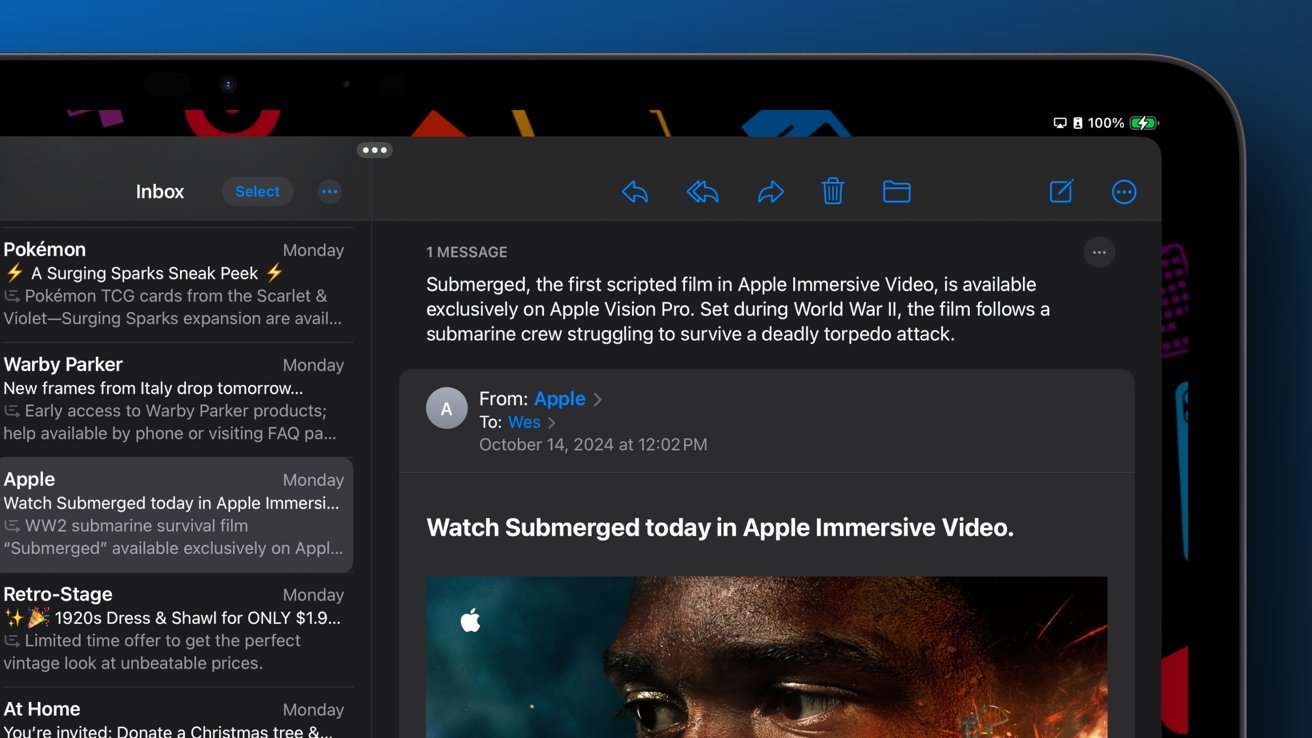
Mail summaries are incredibly useful
We're awash with email here at AppleInsider. Hundreds if not thousands a day. I can see what the actual point of whatever random email I get without opening it. Apple Home isn't packing my notifications thanks to grouping and summaries.
Writing tools have replaced Grammarly, a $150 per year subscription. And, for what it's worth, Grammarly got worse when it implemented artificial intelligence.
I can take a screenshot of a table on a website, ask Siri to send it to ChatGPT, and give me the HTML version of that table, and get it. It still needs to be deeply proofread to be sure it's accurate, but it's faster than creating that table from scratch, and hand-coding the HTML.
These are quaint use cases and not stealing jobs or disrupting the market, but they are tangible. For my needs, Apple is winning, and that's enough.
Perhaps it's not that different from my use of iPad Pro as my main computer. There are more powerful devices that can do more, but I don't need them. That doesn't mean iPad Pro is behind those other products, it's just a different platform and strategy.So far behind, they're ahead
It is quite funny to me to see everyone praising Amazon on Alexa+ when all they've seen is canned demos and a few tech reporters playing with it. I'll reserve judgement for when it's out in the wild on exactly how it compares to the competition.
For whatever reason, Amazon has been completely excluded from the AI conversation, if only because everyone believed that the company gave up on Alexa. It's quite the turnaround to go from layoffs and losing money on a product to endorsing it as the future of Amazon.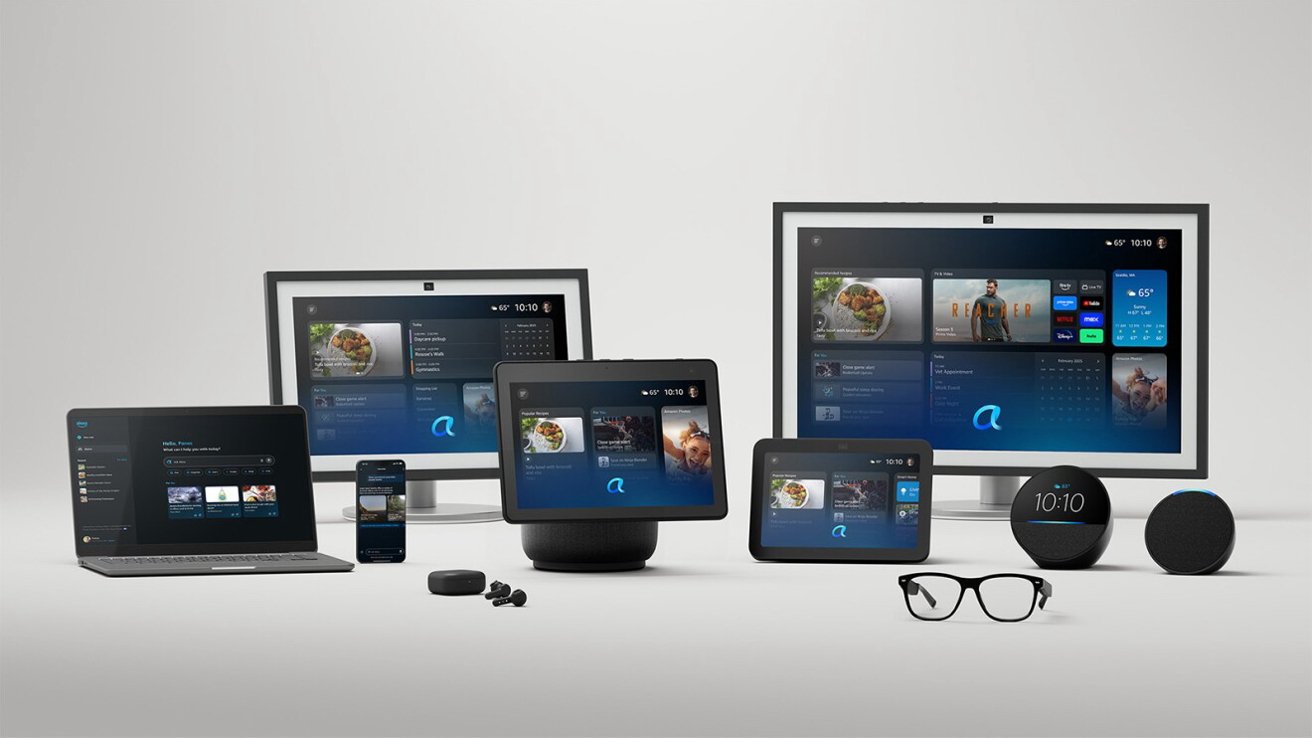
Amazon promises privacy and security with Alexa+. I've also got a bridge to sell you. Image source: Amazon
After a keynote with no new products, everyone is talking about how far behind Apple is again. It's quite impressive, actually.
Alexa+ won't start rolling out for another month and several of its features involve reminders and integrations with Ubering, similar to classic Siri. Be excited for the upgrades, sure, but I frankly don't understand the sentiment that Apple is further behind because of a demo.
It reminds me a lot of how tech pundits would talk about a Samsung Galaxy release in February being miles ahead of iPhone. The device they're praising is a generation ahead of the fall iPhone, so of course it's got better specs, it is meant to compete with the iPhone coming out in seven months.
While it's interesting to see how everything functions while it's all still in flux, I'm more concerned with how it compares once it reaches a steady state. There will be a maturity point eventually, and my expectation is that privacy, security, and access to on-device personal information will have Apple in the lead.
One thing others have pointed out and I agree with: the biggest problem Apple has is the same one that bites it again and again. The company's secrecy and need to work behind closed doors just isn't helping in the AI race.Taking the race metaphor across the finish line

ChatGPT made the image of this metaphor using the text in the article shared via Siri
OpenAI, Perplexity, and Google Gemini are at the starting line with the other lanes empty. The gun goes off and they're running neck and neck.
Suddenly, in the fourth lane, Apple bursts out from underground slightly behind the rest. It leaps out briefly taking a breath only to dive back into its tunnel like some kind of subterranean whale.
The racers don't even look back at this odd spectacle as they pass Amazon, its starting line a mile into the race. Amazon starts running as the rest pass. Apple is nowhere to be seen as it's back underground preparing to surface again somewhere later.
The crowd sees the contenders and the progress they are making. Meanwhile, everyone is wondering where Apple is in this race. They're nowhere to be seen, and even Amazon is running now. Apple must be behind.The real losers
I know it is unfair for me to say Apple Intelligence is the only AI making a difference for me because it is the only one built into my devices. That's a whole different discussion the European Union will eventually try to weigh in on.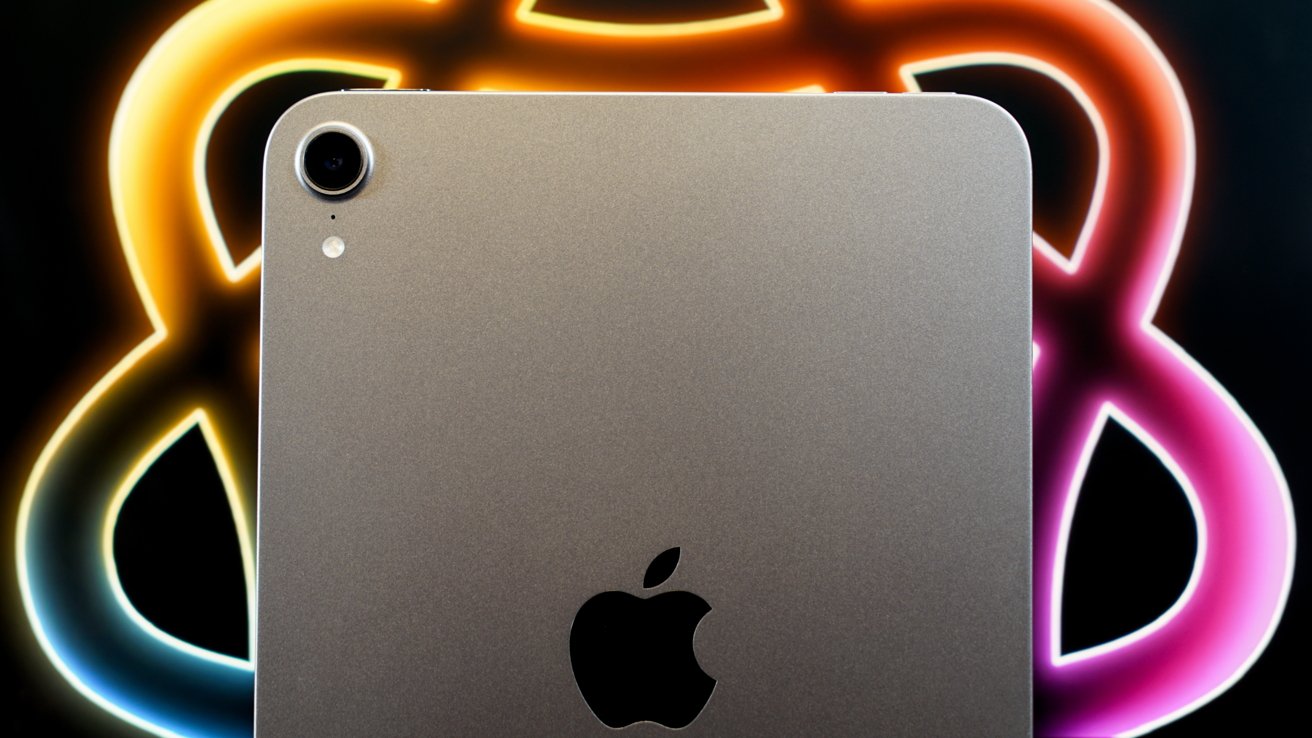
On-device, private AI is where Apple will win
It'll be interesting to observe this metaphorical race going forward. There is an AI ceiling, at least on the consumer side in the near future, so I expect Apple will inevitably "catch up."
Now if I haven't beaten this metaphor to death just yet, allow me one last smack. The real loser in this race isn't any of the competitors, but the observers.
The discourse has gotten so extreme, so silly, and out of the space of reality, that the consumers using artificial intelligence are the real losers here. We've all been robbed of something precious and had it packaged then sold back to us with a pretty bow and a guise of progress.
We were promised a revolution that would be either cataclysmic or life-changing. They said stealing all of the information on the web was necessary to change the world.
They even said that it was too hard and too expensive to pay for and properly credit this content, so for the most part, they just didn't bother. Worse yet, the courts bought that argument.
We never got that revolution, but they did steal everything. We got better autocorrect and AI slop. They got record profits.
Every writer has a footprint, and a style. There are turns of phrase that they like using. For instance, our Managing Editor, Mike Wuerthele, can look at our texts blind and tell which one of us has written a piece without seeing a byline.
It's disconcerting to see these turns of phrase stolen verbatim from a piece, mashed up with content from other venues, and then put forth as Google gospel at the top of nearly every search result.Apple delays spell DOOM
If you're a tech pundit looking for a clickbait headline, the only thing that'll get more clicks than Apple being behind is apparently Apple delaying an expected feature. The company bit off a bit more than it could chew with its personalized Siri based on app intents that it showed off during WWDC 2024.
It's not coming in iOS 18.4 and likely not at all in iOS 18.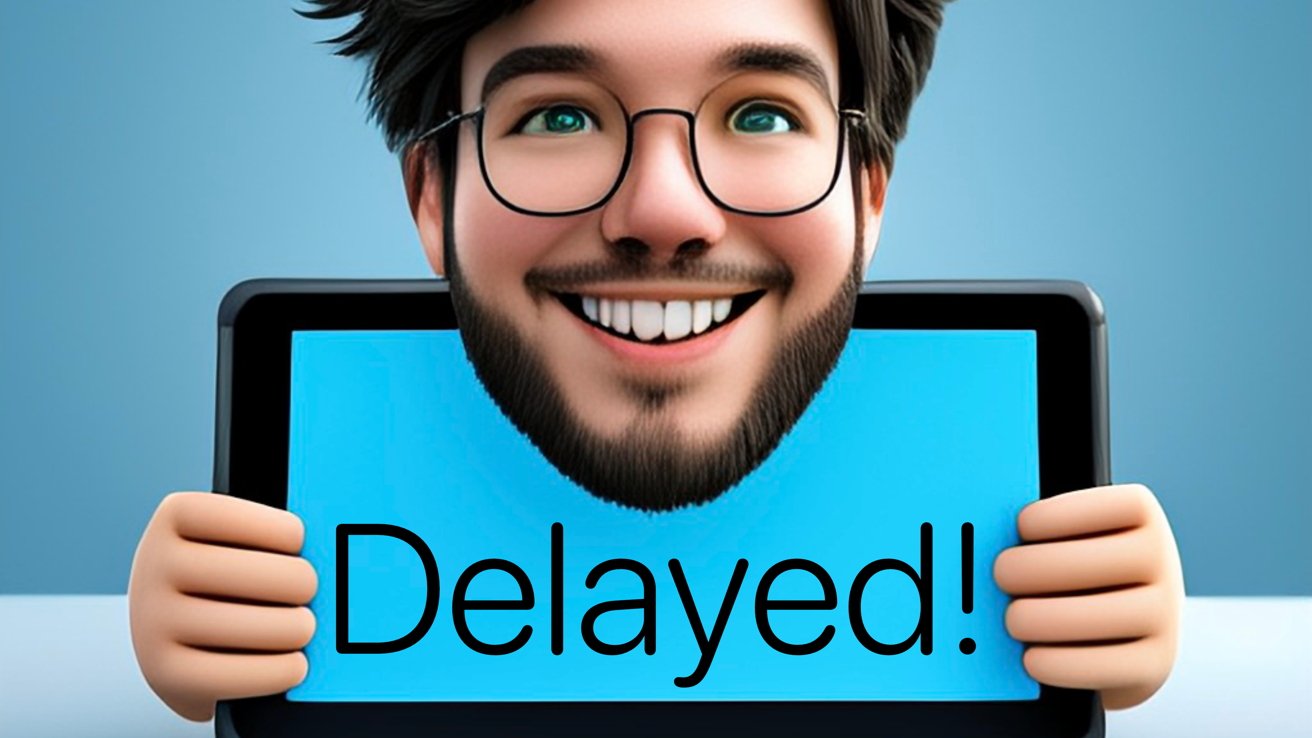
No really, Apple please, take all the time you need. We need better.
The whole concept was built on the existing app intents system that would allow Siri to understand what was on screen or buried within apps. It would allow the system to parse data found in separate places on the operating system, like Contacts showing who your mom is, Mail having an itinerary for a flight, Calendar having an event, and iMessage having a mention of an arranged ride.
All this could combine to result in an answer to a query to "when is Mom arriving?"
There are a few obvious problems with implementing the technology behind the feature. The system is incredibly complex and, like we've seen with summaries, it is prone to hallucination.
And unlike summaries, which are harmless if wrong, this new Siri can't be wrong when dealing with crucial data and actions. If users have to go check the work of the AI, then there isn't a point.
Apple Intelligence summaries are useful but don't always get it right
All of this was being built on the old Siri model. Siri is still and would still be a machine learning model that accesses Apple Intelligence tools the same way it accesses app functions. And all that will be changing soon enough.
Perhaps Apple realized the key component to this app intent system for Siri is having Siri be an LLM as well. Whatever the reason, it isn't coming before June.
The level of integration provided by app intents being tied to Siri and Apple Intelligence could have leapfrogged Apple ahead. It would be something visible, understandable, useful, and above all, private.
That said, the delay is good news for users. It's a sign Apple has learned its lesson with pushing out Apple Intelligence features that aren't ready for prime time.
The need to have AI in 2024 pushed some boundaries Apple was uncomfortable with, and things started breaking. The BBC wasn't happy with notification summaries, and that was a black eye on Apple's efforts.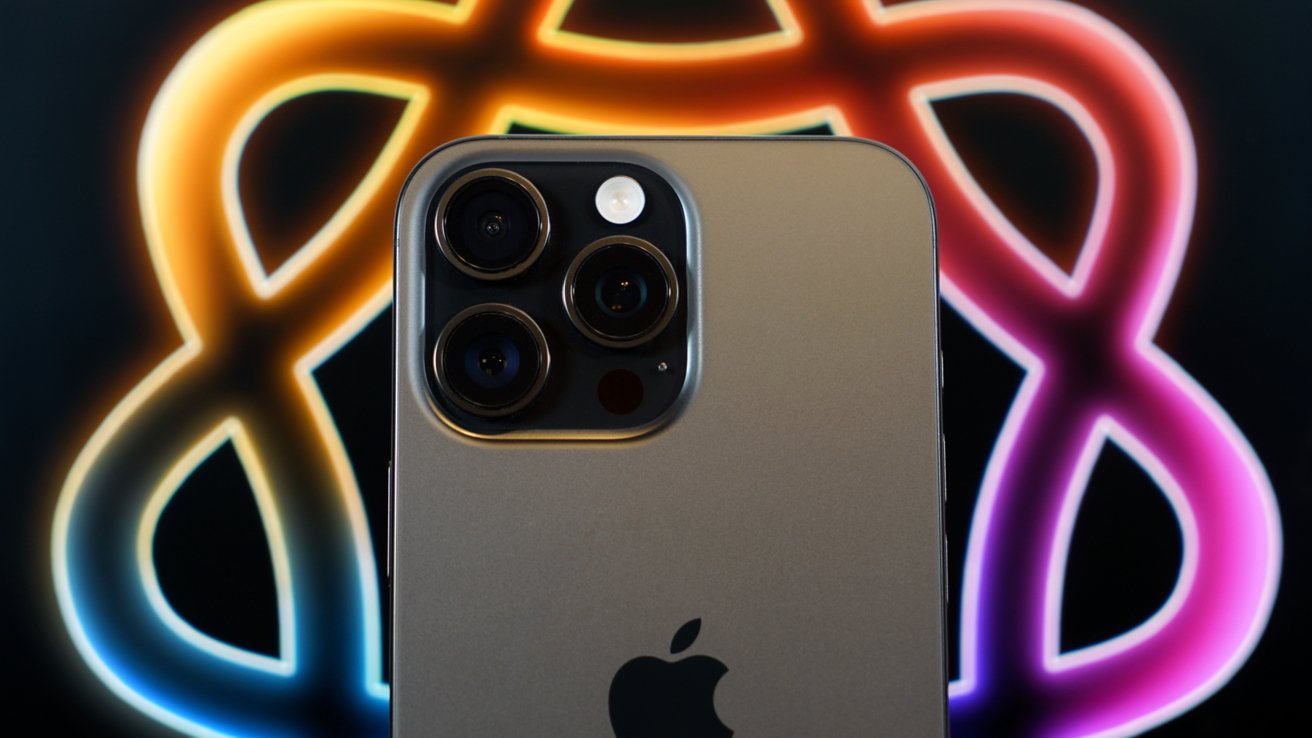
Apple can't afford to ship a critical feature that gets details wrong
Now imagine that same issue but with getting details of your mother's flight wrong. She probably doesn't want to wait in the airport for a few extra hours, and you certainly don't want to be circling or sitting in a parking lot for half of the day.
Of course, this, combined with Amazon's announcements and ChatGPT's 40th new model version this week, has Apple being labeled as "behind" again. In the grand scheme, in the public eye, I'm not going to say that's necessarily wrong, but I wouldn't bet against Apple either.
Apple was behind in the smartphone market, the tablet market, the smartwatch market, the headphone market, and the $3,500 headset market at one point. If we're calling Apple behind here even though it is providing tangible benefits for users, so be it, but don't bet against them being a bigger player soon.
Apple Intelligence has had a rough start. Public perception places Apple far behind the competition. Delays are inevitable as Apple's need for perfection and security wins out over investor pressures.
Meanwhile, I'll continue to benefit from Apple Intelligence and almost none of these other models as everyone yells about how behind they are. I'm excited for what's next.
Read on AppleInsider



-
M3 iPad Air review roundup: It's just a spec bump
The first reviews for the new iPad Air are out, and to no one's surprise, it's still a capable device, if a little boring.
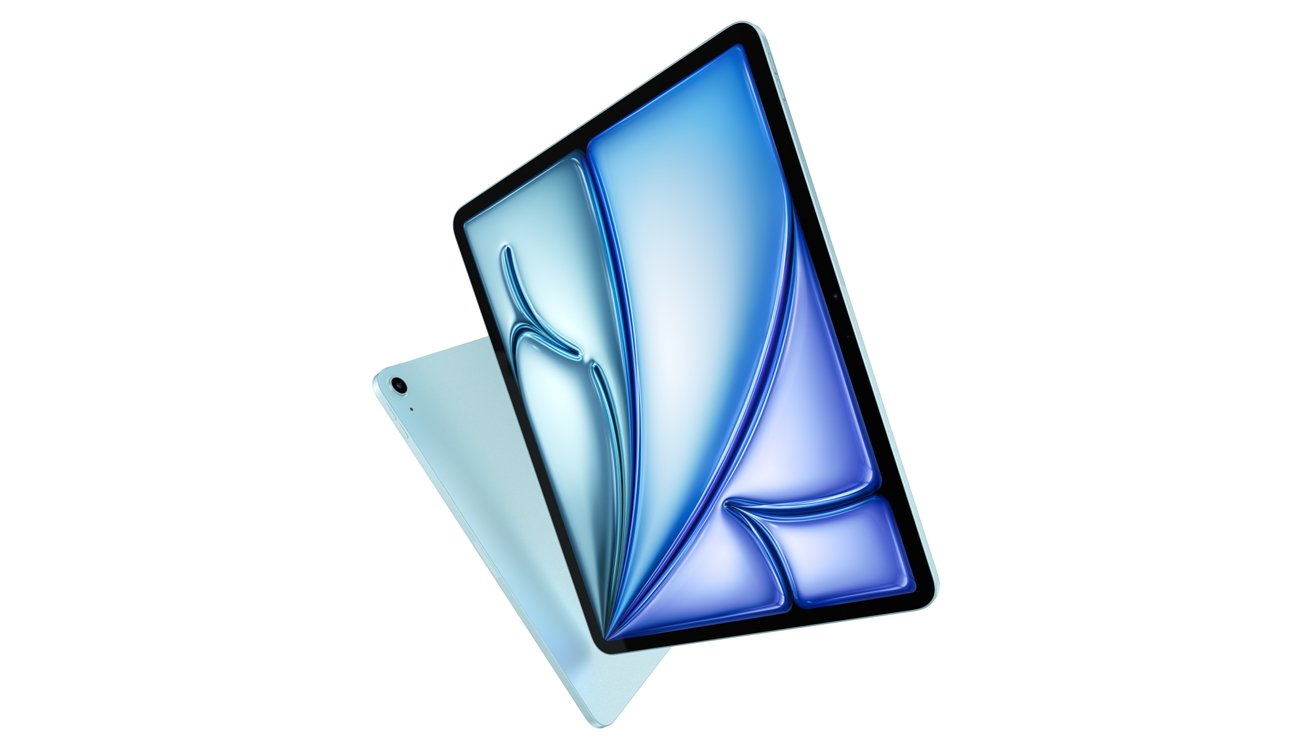
M3 iPad Air general concensus: It's fine.
Reviews of Apple's newest iPad Air are rolling in, and the consensus across most of the reviews we've seen is surprisingly similar, even if the scores seem to vary quite a bit.
Pretty much everyone agrees that the M3 iPad Air offers a slight jump in specs over the M2 iPad Air -- and only a moderate increase over the M1 iPad Air.Wired
Wired'sBrenda Stoyler gave the M3 iPad Air a respectable 7 out of 10. There are plenty of features that she found worthwhile, and relatively few drawbacks.
Stoyler points out that, compared to its predecessor, the M3 iPad Air gets a handful of new capabilities, -- specifically ray tracing, mesh shading, and dynamic caching. She also highlights that it's a decent upgrade for those who may still have the iPad Air M1, as they'll see 35 percent faster CPU performance and 40 percent faster graphics.
She goes on to point out that it's an easy upgrade for those coming from an A-series chip.
Because it feels snappy and works with the Magic Keyboard Case, she says it's fine for work, provided you're okay working on iPadOS and not loyal to macOS.
Stoylar's primary complaints about the M3 iPad Air are relatively straightforward. She points out that it's been a while since the chassis has been updated, making it thicker and heavier than the iPad Pro.
Because the 2025 iPad Air still uses an LCD screen, she is reticent to offer it as a suggestion for creatives or gamers. She notes that this is because these two markets would benefit from better color accuracy and improved refresh rate or a mini-LED.
While she liked it, she does point out that the device is due for an upgrade. Because of this, those who have an M2, or even an M1 iPad Air, may want to hold off on the upgrade.Engadget
When Engadget's Nathan Ingram got his hands on the new iPad Air, he gave it an 89 out of 100. His review echoes that of plenty of others -- there's not a lot of "new" being brought to the table, but it continues to be the best iPad for the average person.
Ingram is quick to point out just how much better the iPad Air is than the base-level iPad. It's much easier to work on, and he found that he got eight hours of battery life when using it for work while paired with the matching Magic Keyboard.
When it comes to recommending a specific model, he notes that the 11-inch iPad Air starts at $599, $250 more than the base iPad. However, the quality of life upgrades, like having an M-series chip and Apple Intelligence, and moderate future-proofing make it a worthwhile purchase.
However, like others, he wishes that Apple would improve the screen. He suggests that Apple should swap the LCD for the mini-LED, which would offer improved brightness levels and refresh levels.
His other main complaint is that the device lacks Face ID, which hardly feels like a "Pro" level feature anymore. This is doubly true now that Apple has moved the iPad's camera to the horizontal configuration.
Overall, he points out that this update is a spec bump, and it's probably going to be most worthwhile to those who haven't upgraded their devices in a while. Otherwise, those on the M1 or M2 iPad Air may want to wait to upgrade.The Verge
The Verge'sDavid Pierce's review echos the two prior. He gave the M3 iPad Air an 8 out of 10, which falls between that of Wired and Engadget's.
Pierce's review is largely just a review of the M2 iPad Air, noting that anyone who has the previous generation won't notice much, if any of a difference. Again, this means that it's not a high-priority upgrade for anyone on the M-series chip, but might be a smart snag for those coming from the A-series.
He, too, had a problem with the lack of Face ID, citing that it can be a pain to repeatedly need to reach up to sign into apps. The lack of a 120Hz refresh is also somewhat of a sticking point.
He was the first to mention how the price gap between the base 11-inch M3 iPad Air and the base iPad was somewhat of a tough sell. Especially because he doesn't see a reason for anyone to upgrade explicitly for Apple Intelligence at this point.
Overall, Ingram thinks it's a solid device, but not exciting. He's the first to suggest that the base-level iPad might actually be the smarter buy, too.
Video reviews
A handful of video reviews have also come out. The consensus is about the same as the written ones.
Apple's new iPad Air ships to consumers on Wednesday, March 12.
Read on AppleInsider
-
Apple finally accepts that 64GB is inadequate for iPhones and iPads
For eight years, Apple has sold iPhones starting at 64GB to hit a price point, but Apple Intelligence has made it accept what we all knew already -- 128GB is the real minimum.

Apple has made 64GB the base storage for all iPhones from the iPhone X in 2017 until 2025
Back in 2017, the iPhone X brought us features that we wouldn't be without today, like Face ID and an edge-to-edge screen. None of this may ever go away, and certainly the thousand bucks price tag isn't going to shrink, but one thing has changed.
The iPhone X, along with the same year's iPhone 8 and iPhone 8 Plus, introduced 64GB as the starting storage capacity. There had been 64GB configurations before, starting with the iPhone 4S, but it was that 2011 model's maximum capacity.
Then there were oddities like the iPhone 7 and iPhone 7 Plus, the year before the iPhone X. Those did not offer 64GB, but that was because they started with 32GB and skipped to 128GB and 257GB.
From the iPhone X, though, 64GB was the minimum. While it may have seemed cramped to some users, it was a lot compared to the then-current iPads.
In 2017, the 5th-generation iPad started at 32GB. Only that year's iPad Pro started at 64GB.Times change
There weren't any widespread complaints about the 64GB capacity at first. But we never stop taking photos and we hardly ever remove them, so with larger image sizes, more video, and a larger iOS footprint, 64GB can be cramped, especially if you don't subscribe to larger iCloud storage tiers.
Apple tried to address this with iOS 11 in 2017, that introduced the ability to automatically offload apps to save some space. But speaking of iOS, users complain Apple's iPhone operating system still requires more space during installation than it does afterwards.
So you could find yourself having to delete gigabytes of data just to update your iPhone or iPad. And the offloading of apps is a great idea, but only if you always have perfect internet connections.
That's because the offloading worked by determining which apps were the largest and had not been used recently. It was clever, but not practical.
For instance, if you only travel to a city like London every few months, iOS would offload apps like London Underground map and route-finding ones. And you wouldn't realize until you were in the city and couldn't get a good cell signal to re-download them.No more 64GB options
With the launch of the latest iPad Air, and the iPhone 16e before it, Apple has dropped 64GB from all of its devices. With the exception of the iPad Pro which starts at 256GB, all iPhones and iPads start at 128GB -- including the base model, the 10th generation iPad.
No question, providing more SSD storage space at least used to hit Apple's bottom line. As larger capacities become more common, though, it's possible that Apple has phased out 64GB because that smaller size is no longer economic, given the vagaries of chip production and the commodity markets.
But it's more likely that Apple has run the numbers decided it's worth increasing the storage capacity in order to have Apple Intelligence run on all of its devices. All bar the latest base iPad, as that now has the storage capacity, but not the processing power for Apple Intelligence.
When the first beta versions of iOS and macOS with Apple Intelligence were released, users had to download Apple's Large Language Model, and it was just over a 3GB download. Now Apple says that Apple Intelligence requires 7GB of storage space to operate.
So including Apple Intelligence, iOS, iPadOS, and macOS, now have markedly increased storage requirements. It all cuts into the user's space, and brings people closer to that frustration of running out of room.
That said, there can't be an iCloud user who isn't frustrated by Apple's miserly storage offering there. While it's been eight years since 64GB first became the starting storage capacity for iPhones, but its 14 years since iCloud first offered 5GB for free.
Read on AppleInsider


